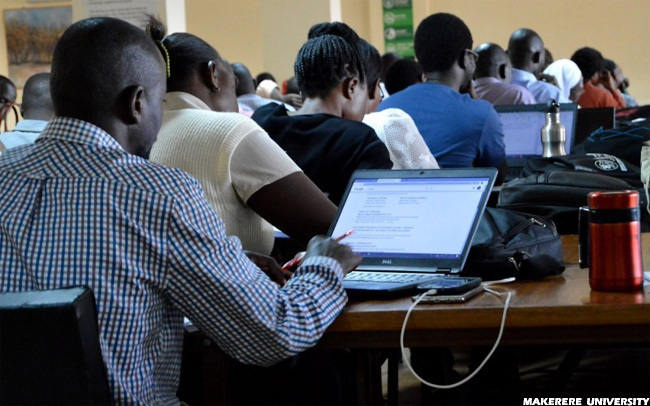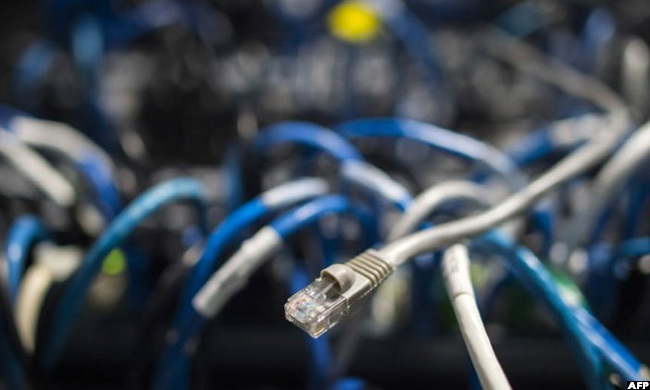Digital technology can reinvent Uganda's education
Tools such as mobile learning, cloud computing and gamification are changing the learning experience.
EDU-TECH
Technology is rapidly advancing and there are no signs of it stopping. It has transformed many industries, including education, and it will keep growing.
This is the argument that has been heavily agreed upon by information and technology experts.
Tools such as mobile learning, cloud computing and gamification are changing the learning experience.

Dr. Lawrence Muganga, a Uganda- and Harvard-trained researcher in education, says, "Teachers and parents, in their hands, have phones, which are massively powerful in their applications and value in use, if only they were used well in their classrooms."
This is true, owing to the words of other experts.
Michio Kaku, a physicist and popular author, put it this way: "Today, your cellphone has more computer power than all of NASA back in 1969, when it placed two astronauts on the moon."
The argument is, the mobile phones we use have a lot of computing power inside them; even the most basic mobile phone does more than there was on Apollo 11 when it landed on the moon 51 years ago.
This means that if you don't have ready access to a laptop, you may not be competing on a level playing field.

With one in four young people across Africa unable to read, according to a 2019 UNESCO report, technology is increasingly touted as integral to democratizing access to education.
Internet technology has changed the face view of life and continues to transform how we interact with our everyday life. There is a whole lot of different digital technology and tools that have the capacity to influence and enhance education.
From being known as a social space, the digital world offers more tools that have brought a new perspective.
"Digital education is disrupting the way traditional education is delivered," says digital enthusiast Micheal Niyitegeka.
He adds that with more information readily available online, the digital space offers a whole host of opportunities that can make learning easier and more successful.
Bright Onapito, an information and technology expert based in Kampala says adopting edu-tech is important because with digital, learning can easily be simulated with visuals. "A teacher can use 3D pictures to show students a heartbeat which would have been difficult by just seeing photos in a textbook."
Onapito says that with digital technology, education has more room for learners to access more knowledge than a formal framework allows.
"Learners can take classes at their convenience since a teacher can record a lesson that students can be able to watch beyond the average class time and can be re-wound for revision."
New learning avenues

There is more functionality in digital education since there are tools that can easily customize and personalize the learning process for the students.
Niyitegeka says digital technology is creating new learning avenues, especially with e-learning, which focuses on the individual's pace, learning requirement and what is important at a given time.
However, he clarifies this style requires high-level preparation, discipline, the ability to use digital technology and access to digital facilities.
For a highly populated country, digital education can be used to facilitate the learning process with ease.
"There is high value in using education technology," says Niyitegeka. "Through internet capability, a resource can be made available in 100 stations at a given time. It can also give multiple contexts and learning from a different environment."
He adds: "Potentially each smartphone in this country is a learning platform. This awareness is a reminder that we should begin to strategize in using the available technology well, in and outside the classroom. We need to look at these tools not just as luxury tools but as productivity tools."
Education technology complements the teacher's physical presence, which is limited to time in the classroom.
Onapito says that education technology can introduce new disciplines that would not have otherwise been accessed. "Programing and robotics can be brought to students in remote places through a digital class, which makes learning such specialities more affordable."
According to Niyitegeka, it is critical that the leadership within institutions begin to perceive internet connectivity as we perceive a utility like water or electricity. "This means that there will be a lot of planning and a need to manage the infrastructure and cost," he says.

Make technology work
Even with this increase in tech use, some of it innovative, a great number of teachers in Uganda indicate they are intimidated by students' knowledge and use of tech.
A good number of schools around the country were beneficiaries of cyber school laboratories, which were meant to improve learning of sciences in schools. However, experts in ICT-related projects say that it is not enough to have equipment and software in schools.
The cyber laboratories have over the years transformed teaching and learning in schools, thanks to the Government which got 800 of its schools on this project in 2012.
Much as the change may not be massive, but an improvement in performance can be noticed in several public schools, which have had access to digital science and virtual lab software in the last seven years.
There has been a noticeable academic improvement in sciences in national examinations for almost all the schools that received the equipment between 2012 and 2019. In certain instances, a few school's performances declined, especially the newly established ones.
At times, even with this technology, there is a massive demand for teachers in Government and privately-owned schools in the country.
Data from the education ministry shows that more 4,000 science teachers are still needed in Government-aided secondary schools to fill the void in the teaching service. The teachers, studies show, are available, but the ministry has lacks funds to pay their salaries if hired. Private schools also find it expensive to hire science teachers.
Raymond Kigongo, a teacher in Kibaale, says: "Teachers need to be helped to know the assets at their disposal and how to use some of these gadgets."
"It is not enough to just dump hardware in a classroom. You need to get teachers and managers on board. They are the ones who carry the process," he adds.